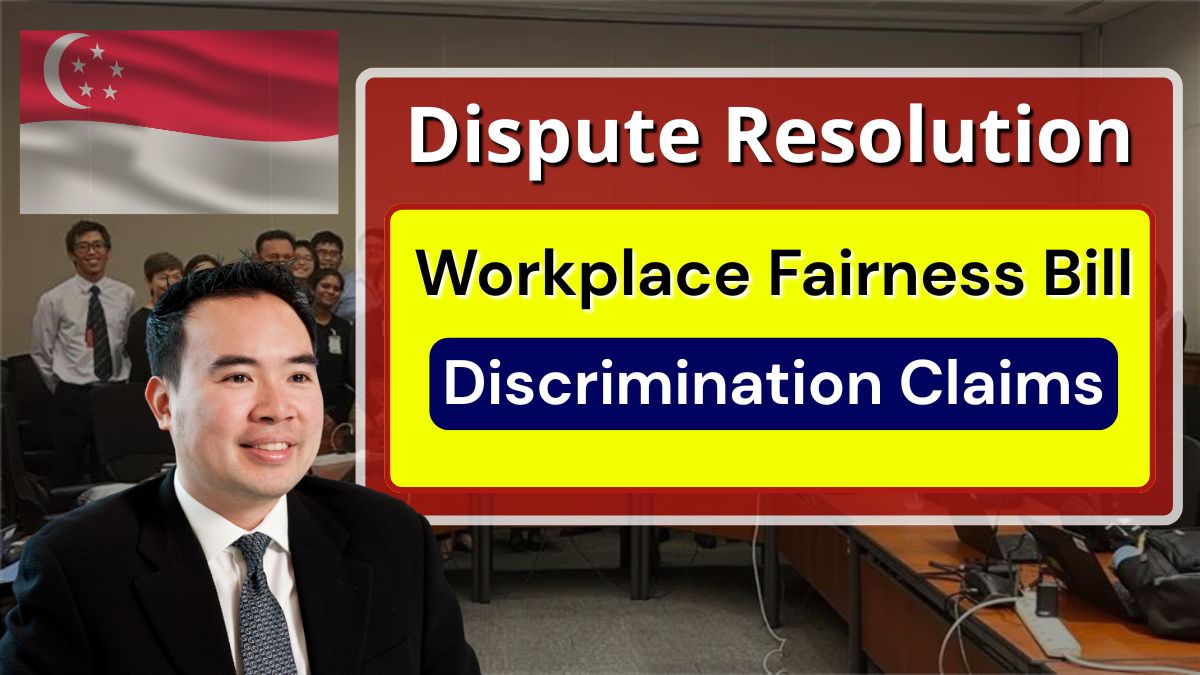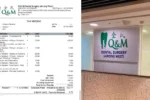Singapore Workplace Fairness Bill: What happens when someone faces discrimination at work — but fears a long, stressful legal fight? Singapore’s new Workplace Fairness (Dispute Resolution) Bill aims to change that.
The government has introduced this bill as part of the broader Workplace Fairness Act (WFA), promising a process that’s fair, fast, and friendly for everyone involved. In short, it’s designed to make sure workplace disputes don’t turn into drawn-out battles — but instead end with mutual understanding and respect.
Encouraging Resolution, Not Confrontation
Here’s the thing — the new system focuses on resolving disputes amicably before they escalate.
According to Singapore’s Ministry of Manpower (MOM), both employees and employers should first try to settle disagreements within the company itself. If that fails, the next step is mediation, where both sides talk things out with an impartial mediator’s help.
Only when those steps don’t work does the case move to adjudication, which is treated as a last resort. This approach not only saves time but also protects workplace relationships — something that can be hard to rebuild once conflict goes public.
Simplified Process, Clear Support
If a claim is made, how it’s handled depends on the amount involved:
- Up to $250,000: Heard by the Employment Claims Tribunal (ECT) — a simpler, less intimidating forum.
- Above $250,000: Handled by the High Court, following stricter legal procedures.
For most discrimination-related cases, the government expects them to stay in the ECT, where workers can navigate the process without hiring lawyers.
While legal representation isn’t allowed at the ECT level, employees can still turn to their unions for guidance. MOM has confirmed that two union representatives can assist both sides — explaining rights, guiding documentation, and even encouraging settlements before things get heated.
This keeps the process approachable for ordinary workers who may not have the time, money, or confidence to go through lengthy legal procedures.
Protecting the System from Misuse
To keep the system fair for all, the bill allows employers to strike out baseless claims. Those filing frivolous or vexatious complaints could face cost penalties or even investigation under the Administration of Justice (Protection) Act.
Simply put, the law protects both employees and employers — ensuring genuine grievances are heard while filtering out false or malicious cases.
A Step Toward a Fairer Workplace Culture
This bill represents the second phase of Singapore’s Workplace Fairness Law, following the first part passed earlier this year. Both parts are expected to take effect in 2027, giving businesses time to align their HR practices with Tripartite Guidelines on Fair Employment.
The Tripartite Alliance for Fair and Progressive Employment Practices (TAFEP) will play a key role in guiding employers and workers through the transition.
For now, the message is clear: fairness at work isn’t optional anymore — it’s the standard.
Frequently Asked Questions
1. What is the goal of Singapore’s Workplace Fairness Bill?
It aims to create a fair, simple, and accessible system for resolving workplace discrimination disputes without lengthy or costly court battles.
2. Can employees get legal help under the new process?
In most cases, no — lawyers aren’t allowed at the ECT. But workers can receive help from union representatives for advice and mediation.
3. When will the new law take effect?
Both parts of the Workplace Fairness Act are expected to be implemented in 2027 after Parliament’s approval.



